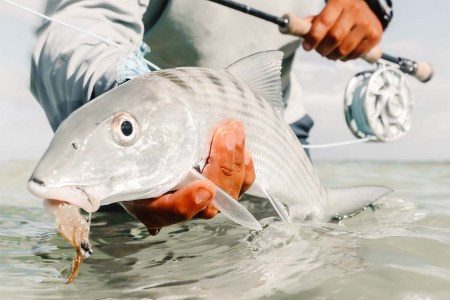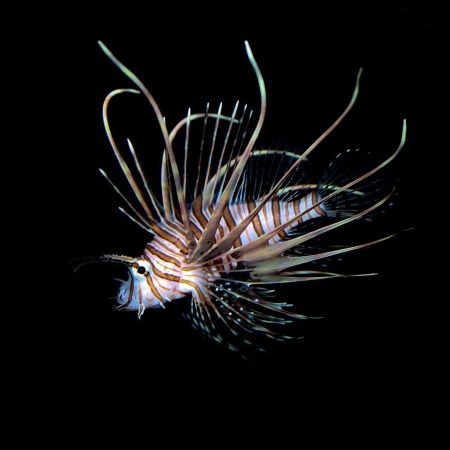If you’ve ever had fish as pets, you’ve probably owned at least one goldfish, and that’s understandable — the fish are hardy, adaptable and easy to take care of. But the same qualities that make them great pets also means that they can easily adapt to other environments, and that’s where things get a little more complicated. Goldfish can get big under the right conditions; the record for the largest goldfish went to one that measured over 18 inches in length.
Now imagine a bunch of fish of that size in a river or lake. It’s a textbook case of an invasive species — and, as it turns out, you don’t have to imagine that situation at all. For people living near the Great Lakes, it’s a strange new reality.
That’s the gist of a new New York Times investigation by Livia Albeck-Ripka, which explores the ways in which goldfish have disrupted the ecosystems of the Great Lakes. “There are literally millions of goldfish in the Great Lakes, if not tens of millions,” said the University of Toronto Scarborough’s Nicholas Mandrak. And given that these fish are omnivorous, it’s not hard to imagine how they could reshape the ecosystems around them.
The goldfish population, Albeck-Ripka writes, was the subject of a study recently published in Science Direct. The scientists’ findings include some ominous details about the future of goldfish in the Great Lakes. “There are now three studies that have examined goldfish ecology using acoustic telemetry and the evidence suggests that goldfish have the potential to move greater distances than we anticipated, which has implications for invasion into new areas,” the authors write.
In Belize, a Saltwater Fly-Fishing Paradise Awaits
Nestled on the island of Ambergris Caye, El Pescador Lodge caters to both experienced and first-time saltwater fly anglers. Here, you’re part of the family, no matter your catch.Still, there’s also some hope that these findings could lead to a future for the Great Lakes with substantially fewer feral goldfish. “Results from this work will inform control strategies for goldfish, including active removal during aggregation prior to spawning,” the paper’s authors write — something that bodes well for future mitigation efforts.
This article appeared in an InsideHook newsletter. Sign up for free to get more on travel, wellness, style, drinking, and culture.



















